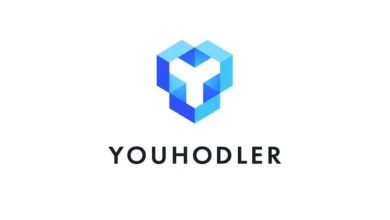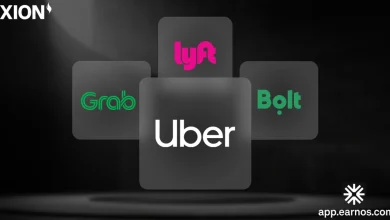
It’s 2023, and the metaverse is no longer just a vision but quickly becoming a reality. Digital worlds are becoming more popular by the day. Statista estimates that global revenue from the metaverse will rise from $65.5 billion in 2022 to over $930 billion by the decade’s end.
Moreover, Gartner Inc. reckons 25% of consumers will spend at least an hour daily in the metaverse by 20266. Engaging themselves with virtual world activities such as work, learning, sports, recreation and shopping. It’s a fast-growing world that has attracted attention from dozens of global brands, with Nike, Adidas, Gucci, HSBC, Starbucks and JP Morgan Chase already establishing a presence there. As such, 2023 is likely to prove a pivotal year in the growth of the metaverse, and already it has seen several exciting trends develop.
Let’s take a look at some of them in this article.
1. The New Marketing Channel
Numerous brands have begun exploring the metaverse’s potential in their digital marketing strategies. They believe these growing virtual worlds can open the doors to new audiences. The metaverse provides an ideal platform for them to study consumer trends. Analyze the response to different products and services.
The immersive nature of the metaverse enables brands to come up with some truly original and creative marketing ideas. One of the best we’ve seen is Nike’s Nikeland. A virtual environment in Roblox where users can try on various Nike products, watch basketball and soccer games and socialize with other fans. Similarly, Benetton has created a metaverse store called PlayChange. That allows visitors to play games and earn discounts in its physical stores.
2. Remote Collaboration
In the corporate world, the metaverse is rapidly emerging as a dynamic environment for remote workers to collaborate from any location. With platforms such as Horizon Worlds, team members can meet up with anyone worldwide. Speak to clients and colleagues worldwide and collaborate on work-related projects without geographic constraints. Metaverse environments can even be used to onboard new employees and train personnel, significantly reducing the associated costs for companies.
One interesting example is Accenture’s “The Nth Floor”, a virtual environment simulating a real-world office. Companies can use this environment for HR activities and remote collaboration. With users immersing themselves in a digital environment, they can meet with colleagues remotely. In an experience that more closely resembles a face-to-face meeting.
3. Digital Twins
The metaverse is poised to accelerate digital twin technology adoption. We can simulate real-world products, machines and real estate with digital twins. And use these for testing, monitoring, operational assessments, design and prototyping, just a few everyday tasks. These digital twins can be hosted in virtual worlds, enabling people to explore them as if they were in reality.
For instance, Nvidia’s Omniverse platform enables designers to create an interactive digital twin of an industrial facility or manufacturing site and use it to study how they can maximize operational efficiency. Ford uses the metaverse to develop digital twins of its vehicles, study their performance, and test various design tweaks.
4. Augmented Reality
Most people envision the metaverse as a fully immersive world experienced through a virtual reality headset that completely blocks the user’s real-world environment. But that isn’t the only kind of metaverse being developed. Great advances are also being made in augmented reality metaverses. Which overlay digital objects onto the real world to enhance people’s experiences.
Launching this year, Peer’s AR-based metaverse will be mapped to the real world. Enabling users to explore any location on the planet, and discover posts from other users. And drop and collect digital objects such as NFTs and more. The potential of Peer is enormous. One video shows how a designer can embed enormous, 3D dinosaurs into the real world so passers-by will see them. It says this could be a marketing gimmick for a dinosaur museum to entice people to visit. Peer is also building a metaverse map, so when people enter its AR world, they’ll be able to search for nearby businesses, read reviews etc, of interesting places around them.
Another example of AR is the latest Mercedes-Benz EQS, which features a built-in Head Up Display that overlays navigational directions onto the windshield, allowing the driver to reach his or her destination easily. Meanwhile, Disney has developed AR experiences for visitors at its theme parks and a virtual Disneyland where people can experience the thrill of its rollercoasters and more.
5. Virtual Events
Another promising trend this year is the rise of virtual events. Which take place entirely online and can be experienced by people from any location. Virtual events encompass everything from concerts, ceremonies, trade shows and exhibitions to virtual conferences, webcasts, training events and podcasts.
Some of the world’s biggest performers have already jumped on this trend. With music stars such as Justin Beiber, Lil Nas X, the Foo Fighters, and Marshmello all hosting virtual concerts in the metaverse. They allow fans to watch their favourite musicians perform. As if they were attending a live experience, from the comfort of their homes. Virtual events rose to prominence during the COVID-19 pandemic but have gained traction this year, showing that it’s no fad.
Final Thoughts
The metaverse trend was kicked off in a big way by the enthusiasm of Facebook founder Mark Zuckerberg. It sparked a wave of innovation and development. The metaverse is emerging as a popular way to test new products. Engage with new audiences and create new experiences.
As more businesses begin showing an interest in immersive experiences and technology improves, the metaverse is poised to become an essential element of everybody’s lives.
Disclaimer and Risk Warning
The content provided on Coinpedia's information pages is intended to be informative and accurate to the best of our knowledge. However, Coinpedia does not guarantee the completeness, accuracy, or reliability of any information presented. The information is subject to change without notice, and readers are encouraged to conduct their research and consult with relevant professionals before acting on any details or advice. Coinpedia is not liable for any errors, omissions, or actions resulting from the use of the information provided on these pages.







